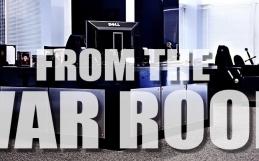If you haven’t heard yet … scores of businesses have been paying the price for trail-blazing early adoption with Microsoft’s Business Productivity Online Suite (BPOS). Over the past 2 weeks there have been 3 system outages that prevented BPOS customers from accessing email, SharePoint, and web conferencing. And while Microsoft gave a rebate to some affected customers, and they offered an apology on one of their blogs late last week … I suspect they have done damage to their reputation as an enterprise cloud provider. What is worse, they illustrate an all-too-common cautionary tale in our industry; the perils of early adoption.
I’m pretty sure we (the ITW team) can comment as subject matter experts here. We have over 6 years experience hosting the business-critical infrastructure (apps, data, network) for our clients. Outages are extremely dangerous; they stick in a customer’s mind like a splinter. As Jay likes to say, “trust is a difficult thing to build, and an easy thing to lose.” Forget the damage to our bottom line if a customer chose to drop our service … Downtime would destroy our credibility as an IT service provider. That’s way worse.
Downtime is especially hazardous for a juggernaut like Microsoft who has spent plenty of time, money, ink, and air slamming its competitors (like Google’s web-based apps) as unfit to suport a serious enterprise cloud solution. Consider this excerpt from a recent CIO article,
Outages are an unfortunate part of doing business in the cloud, but will only be tolerated for so long, says Ted Schadler, vice president and principal analyst at Forrester Research.
“These kinds of cloud outages come with the territory,” says Schadler. “But what’s different now is that companies have to trust that a third-party utility provider can do a good enough job to keep an annoyance from becoming a business risk too high to tolerate.”
Clearly, the BPOS outages are a poor reflection of Microsoft’s ability to support enterprise software. And an apology, no matter how sincere, doesn’t give customers back the two hours that they didn’t have e-mail when a project was due or when documents needed to be sent to important clients.
As I’ve said elsewhere, I think it’s far too early for medium sized and enterprise businesses to be jumping onto the cloud based apps of Microsoft and Google. The technology itself (let alone the support infrastructure) isn’t nearly mature enough to warrant the risk … Despite the apparent cost benefits that Google and Microsoft advertise. And these recent Microsoft BPOS outages are a perfect example.
Now, to be fair … There are a number of ways to look at a situation like this. I would be over-generalizing to just say that all early adopters are foolhardy. Some folks have their reasons to move to web-based apps; and they clearly have a level of risk tolerance that lines up with these new SaaS platforms. For some, the value is there. Consider these comments the CIO article mentioned above,
As a CIO, I have been in a hosted environment (not Microsoft) for 10 years. Outages are few and far between – and yes getting some money back helps a lot. Let’s face it – on premise hardware is FAR FAR more likely to have outages than an intermittent, occasional 2 hour outage. And when it happens to on-premise – there is no money back. There is scrambling, panic, and pressure. In these economic times, my CFO would be happy to get a little cost break for a measley 2 hours of trouble. It’s less down time than he had before the cloud services, the IT team didn’t miss a beat and he gets a reduction in cost. STILL a great proposition!
Fair enough … But I am still not ready to recommend the big-box SaaS platforms to our customers yet. The reality is that those 2 hour outages add up quickly … and when you combine those outages with the existing lack of real time support or platform customization … Our official advice is to wait on web-based SaaS. For now, let someone else pay the costs for Microsoft’s cloud growing pains.




